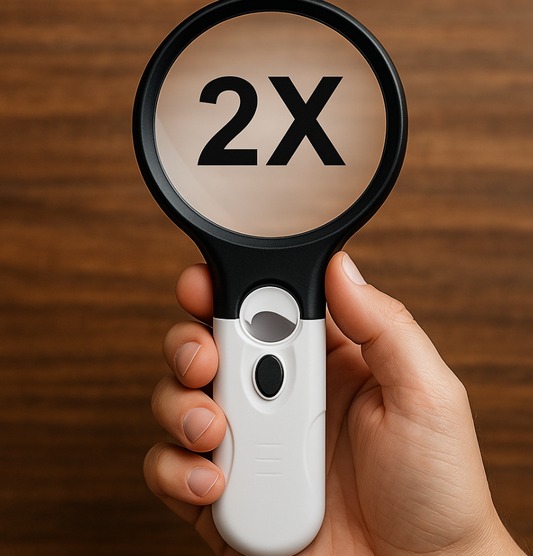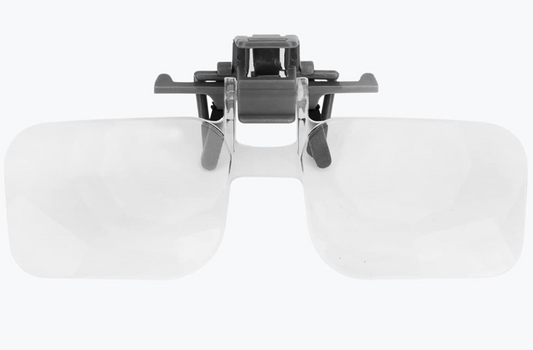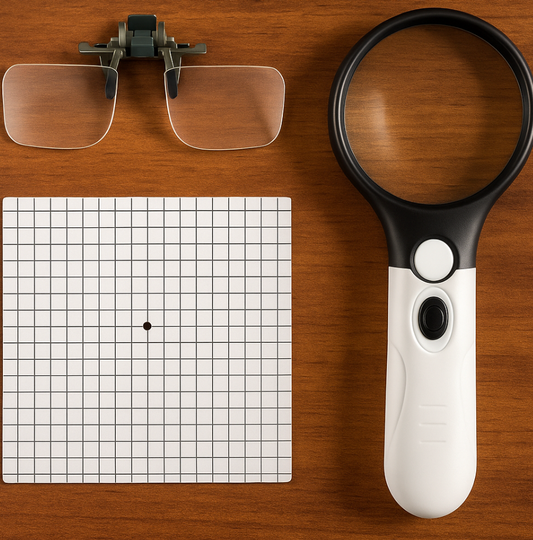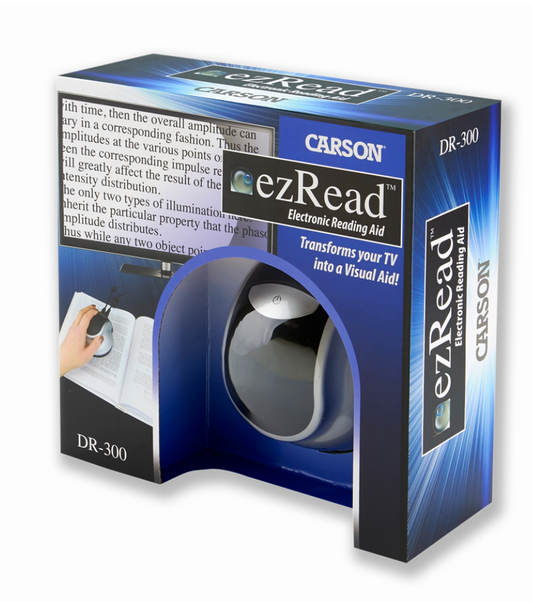No More Reading Glasses? How the Latest FDA Approved Drops Can Help
Share
As we get older, many of us notice that reading small print or focusing up close becomes more difficult. This is a normal part of aging called presbyopia. It usually starts in your 40s and gets more noticeable over time. Traditionally, people manage presbyopia with reading glasses, bifocals, or contact lenses. But recently, eye doctors have started to prescribe special eye drops designed to help improve near vision. Two of the most talked-about drops are Vuity and Vizz.
In this post, we’ll explain what these drops are, how they work, and what patients should know before trying them.
What Is Presbyopia?
Presbyopia happens because the natural lens inside your eye becomes less flexible with age. When you’re young, the lens changes shape easily, allowing you to switch focus from far to near quickly. But over time, the lens stiffens, making it harder to see up close. That’s why you might find yourself holding a book farther away, needing more light to read, or relying on reading glasses.
Vuity: The First FDA-Approved Drop for Presbyopia
Vuity was the first eye drop approved to treat presbyopia. It works by making your pupil (the black part in the center of your eye) slightly smaller. When the pupil becomes smaller, it increases the “depth of focus,” meaning more of what you see stays clear both up close and at intermediate distances.
- How it’s used: Usually one drop in each eye, once a day.
- Onset of action: Many people notice improvement within 15–30 minutes.
- Duration: The effect can last about 6 hours for most people, though it varies.
Vuity does not cure presbyopia, but it can temporarily reduce the need for reading glasses.
Possible side effects: Some patients report headaches, eye redness, or mild dimming of vision, especially in low light. Because it makes the pupil smaller, night driving can be more challenging for certain people.
Vizz: Another Option for Near Vision Drops
Vizz is another eye drop that has entered the market for presbyopia management. Like Vuity, it also works by affecting the pupil size to help with near vision. While the core idea is similar, the formulation and duration may differ slightly. Some patients find Vizz provides a smoother or longer-lasting effect, while others prefer Vuity.
It’s important to know that not every patient responds the same way to these drops. Factors such as your prescription, age, overall eye health, and even lighting conditions can influence how well the drops work for you.
Who Can Benefit from Vuity or Vizz?
- Adults in their 40s to 60s who notice difficulty reading or seeing up close.
- People who don’t want to rely on reading glasses all the time.
- Patients looking for a non-surgical, temporary solution.
However, these drops are not for everyone. If you have certain eye conditions such as glaucoma, retinal disease, or a history of eye surgery, your doctor will carefully consider whether they are safe for you.
What to Expect
If you and your eye doctor decide to try Vuity or Vizz, here’s what you can expect:
- Quick improvement – Vision often gets sharper for reading within half an hour.
- Temporary effect – The drops do not last all day. Most patients still use glasses for certain activities.
- Trial period – Some people notice great results, while others see only modest improvement. It may take a few tries to see if these drops are right for you.
- Continued need for glasses – These drops are not a replacement for glasses in all situations, especially for night driving or very fine detail work.
Talking to Your Eye Doctor
Before starting Vuity or Vizz, it’s essential to have a full eye exam. Your optometrist or ophthalmologist will make sure you don’t have any underlying eye disease and that you’re a good candidate. They’ll also explain how to use the drops properly and what side effects to watch for.
The Bottom Line
Vuity and Vizz represent an exciting new option for people with presbyopia. They don’t replace glasses completely, but they can give you more freedom in your daily activities—whether it’s reading a menu at a restaurant, using your phone, or working on a laptop without reaching for readers.
Every patient is different, so the best way to know if these drops could help you is to book an appointment with your eye care professional. Together, you can explore whether Vuity, Vizz, or another solution fits your lifestyle and vision needs.



